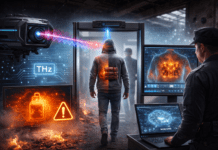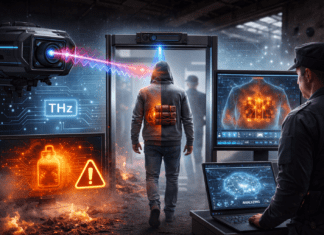This post is also available in:
 עברית (Hebrew)
עברית (Hebrew)
Biometric data ― like fingerprints, voice recordings or even selfies ― could be the next frontier in intelligence, surveillance and reconnaissance. “The opportunity for obtaining, analyzing and utilizing information voluntarily disseminated in the public domain is improving as people’s lives become increasingly intertwined with digital devices,” according to “Special Operations Research Topics 2020,” released by the Joint Special Operations University Press.
The guide, which presents about 40 topics, is meant to inspire students, fellows and faculty members at JSOU in their professional military education, according to a SOCOM spokeswoman. “Topics are collaboratively created each year based on input from members in the U.S. Special Operations community along with representatives from select academic organizations,” Maj. Jennifer Bocanegra told militarytimes.com.
Personal data people voluntarily broadcast on the internet enables tracking and analysis. The myriad information people share about their interests and daily lives online could leave them open to profiling, either because of what they share publicly or because those troves of data could be attractive to hackers.
But for military intelligence purposes, specifically within special operations, online activity could present a new kind of ISR.
Beyond profiling, could SOF intelligence use what people post online to track trends in sentiment, whether that means effectiveness of psychological operations campaigns or other on-the-ground operations? “What can the Internet of Things provide in terms of sensing patterns, trends, concerns, and potential crises? What are its limitations? How might artificial intelligence and machine learning be leveraged in the performance of ISR in this way?”
The private sector is far ahead of military intelligence in that space. The challenge for SOCOM could be its status as a government entity, as companies like Facebook have strict rules about sharing their data with law enforcement and other public organizations.


























